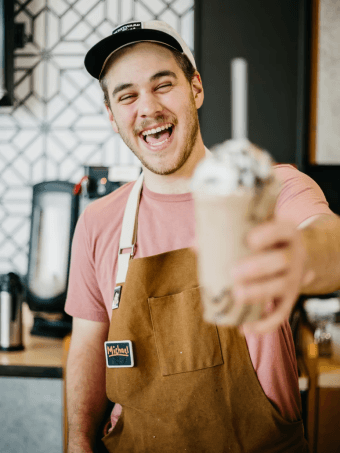Coca-Cola vs Bisleri (India)
Bisleri International and Coca-Cola have been in a legal dispute over using the Maaza trademark for several years. Maaza was first introduced by “Bisleri International Pvt Ltd,” a company famous for providing mineral water. However, lately, Coca-Cola has approached Bisleri with opposition to the usage of this trademark. The conclusion of the court ruling of 2008 restrained Bisleri International and all its associates from using the trademark Maaza or any other deceptively similar trademark in relation to non-alcoholic beverages, and Coca-Cola acquired all rights attached to the product “Maaza” in India. Maaza is now the fastest growing brand within Coca-Cola’s India portfolio.
However, Maaza is not a registered brand in specific markets, and anyone can take up the rights in those markets. Currently, Maaza’s largest market outside India is in Western Europe in countries like the Netherlands, Belgium, and France. Infra Foodbrands, a Netherlands company, has held the rights of the Maaza since 2006 and has been resisting Coca-Cola from buying the rights from it in the European markets.
Coca-Cola vs. Pop-Cola (Nigeria)
Pop-cola brand was established in June 2021 by Mamuda Beverages Nigeria Limited and is now one of the most popular soft drink brands in Kano, one of Nigeria’s top commercial centers. The same year the Pop-cola was launched, Coca-Cola filed a lawsuit against Mamuda Beverages Nigeria Limited, claiming that the Kano-based company had imitated its trademark.
Coca-Cola has approached Mamuda with claims that the ‘ribbon’ they are using in their trademark is almost identical to its ‘dynamic ribbon device’ trademark, which can cause confusion on behalf of consumers. Additionally, the lawsuit filed by Coca-cola seeks Mamuda Beverages to stop using the word ‘pop’ when referring to their products, as Pop-Cola’s tagline ‘pop it in your mouth, which derives from a song of the same title sung in the Nigerian dialect, was too similar to its trademarked “open happiness.”
Coca-Cola vs. Royal Crown (US)
Royal Crown and Coca-Cola are competitors in the beverage market. Starting from 2008, Royal Crown filed multiple oppositions against Coca-Cola Company for its 16 trademark applications using the word “ZERO.” Royal Crown’s central claim was that the word is “generic or merely descriptive of the zero-calorie features of the beverages,” and argued Coca-Cola should be required to disclaim the term ZERO because of the lack of distinctiveness.
Against that, Coca-Cola argued that no disclaimer was necessary since its use of the ZERO trademark had acquired distinctiveness when used in conjunction with soft drinks. The court upheld that evidence and ruled that Coca-Cola’s applications could be registered without a disclaimer of the term ZERO.
With its advertising expenses reaching $4.1 billion last year, Coca-Cola made considerable investments in the promotion and advertisement of its product through trademarks. This is why they are also especially cautious about any potential infringement cases, making sure no free-riders are trying to take advantage of the popularity of their brand and that all their trademarks are well-protected. Quicker and cheaper resolution of any potential disputes and trademark infringement cases represents another key reason why trademark registration is strongly advisable and beneficial to companies, saving time, effort and costs.


